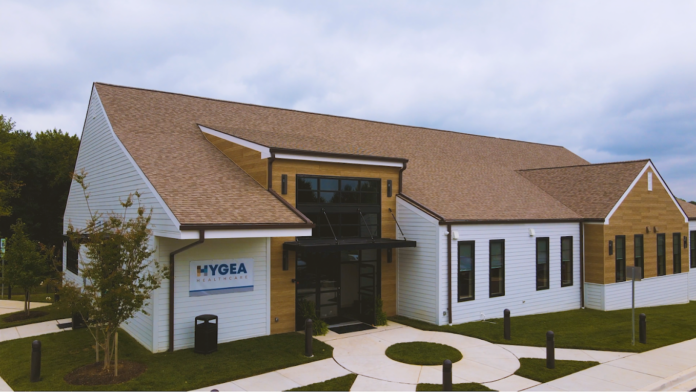About Hygea Healthcare – Middle River
Hygea Healthcare’s Middle River facility offers inpatient care for adults. It’s located on Martin Boulevard in Middle River, Maryland. They provide residential addiction treatment, including medication-assisted treatment (MAT), with specific services for opioid use disorder and other substance use disorders.
Evidence-Based Treatment Practices
Hygea offers treatment to you through individual and group counseling, in addition to services for relapse prevention and continued recovery support. They focus on evidence-based treatment practices provided to you in a clean, welcoming clinical setting.
Detox and Withdrawal Management
Detox and withdrawal management is provided under supervised care providing safe detox treatment from substances like alcohol, opioids and benzodiazepines. Residential treatment programs provide 24/7 support through trauma-informed care. Aftercare support provides services and resources to reduce the risk of relapse.
Hygea accepts most commercial insurance plans as well as Medicaid. They also offer same-day admission, if you’re in need of acute care services to treat your co-occurring mental health and substance use disorders.
Traditional and Holistic Care
Services are provided to you via licensed doctors, nurses and peer recovery specialists, through a holistic, whole-person approach. I find it encouraging to know that their trauma-informed staff will provide you extended individual and group therapy utilizing cognitive behavioral therapy (CBT) and motivational interviewing, as well as peer-support and relapse prevention planning.
It’s also neat that they offer nutritional planning so that you’ll have healthier habits. Diet planning, meal prep, learning about good eating habits are offered. You can supplement these programs with yoga and meditation.
The facility is located near Martin Plaza Shopping Center and is close to local parks such as Wilson Point Park and Martin State Airport. It is also in close proximity to Back River, which provides you with opportunities for calming, natural environments that could support your outpatient recovery treatment.
Latest Reviews
Thank you for sharing your detailed feedback and for your kind words about our team and facility. We’re glad that, overall, your experiences were positive and that our staff, especially Richie, made a difference in your stay. It’s great to know that you enjoyed the amenities, and we’re honored to be considered one of the best Medicaid facilities you’ve encountered.
We appreciate your honest feedback on areas where we can improve. We’re sorry that noise and privacy issues impacted your comfort and experience, especially during such a vulnerable time. Your insights are incredibly valuable, and we’ll be working to address these concerns, especially around room placement, noise control, and improving communication and support when someone chooses to leave.
Thank you again for taking the time to let us know about your experience. Wishing you the very best on your recovery journey, and please don’t hesitate to reach out if there’s ever anything we can do to help in the future.
Warm regards,
The Hygea Team
Your kind words inspire us to continue providing the best care possible. We're so proud to have been a part of your journey, and we wish you continued success and strength in your post-detox rehabilitation. You’ve got this! ❤️
Rehab Score
Gallery
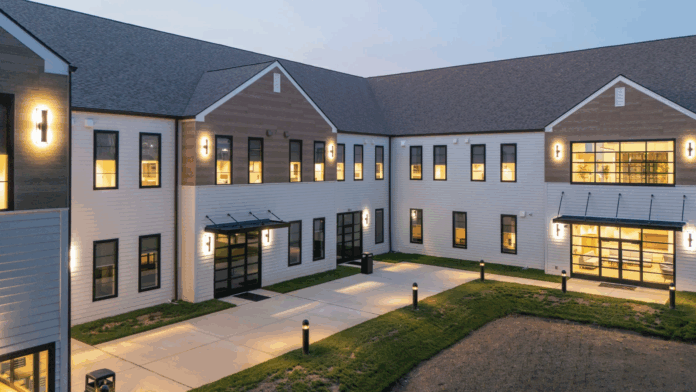
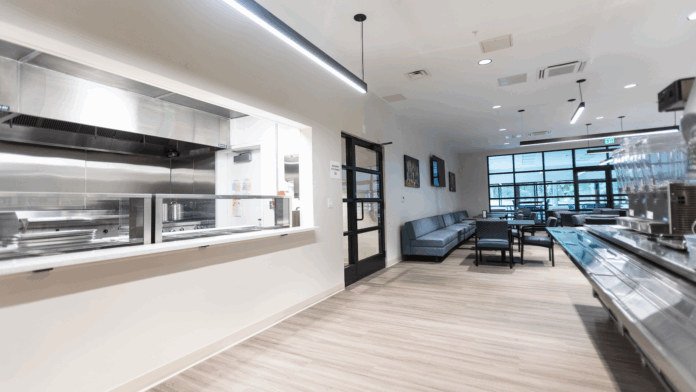
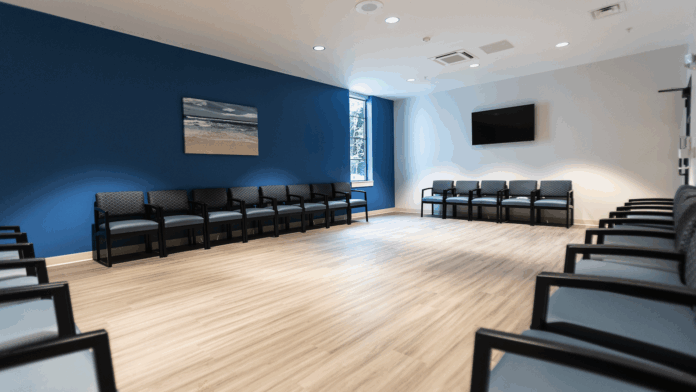
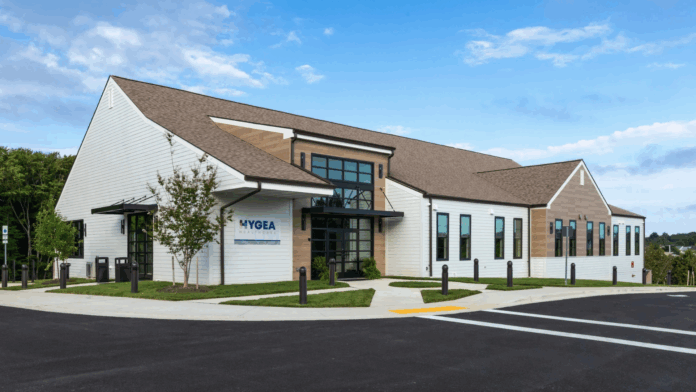
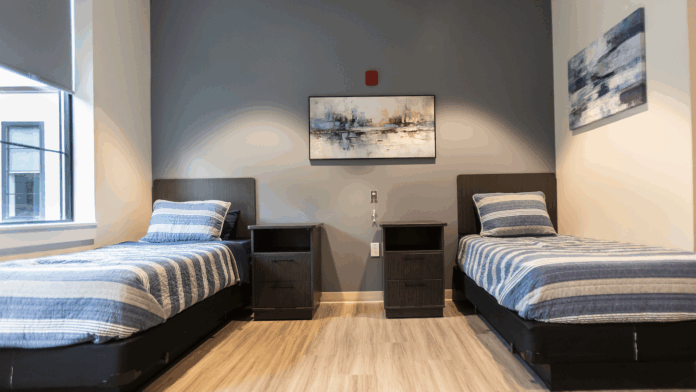
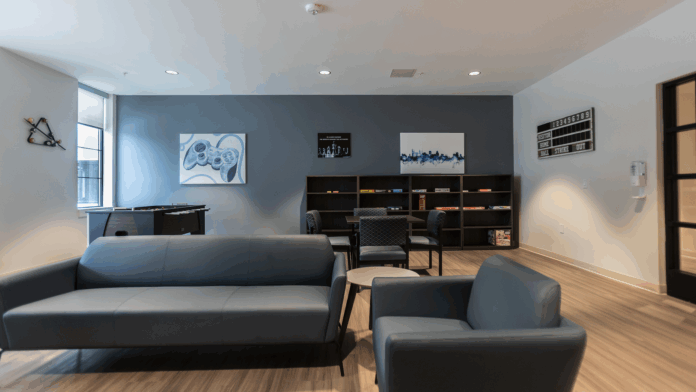
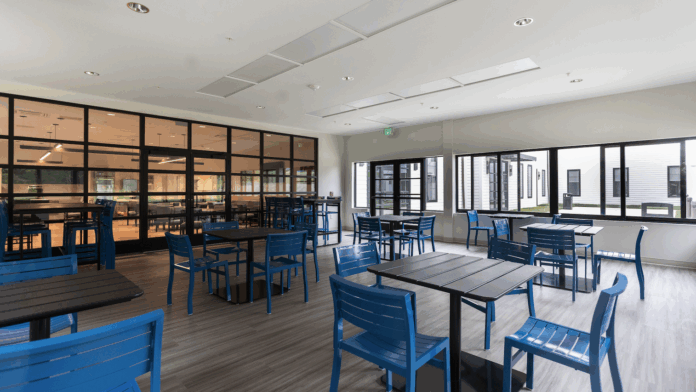
Accepted Insurance
Other Forms of Payment
Medicaid is a state based program that helps lower-income individuals and families pay for healthcare. Medicaid covers addiction treatment so those enrolled can use their coverage to pay for rehab. When a program accepts Medicaid the client often pays very little or nothing out of their own pocket.
Private insurance refers to any kind of healthcare coverage that isn't from the state or federal government. This includes individual and family plans offered by an employer or purchased from the Insurance Marketplace. Every plan will have different requirements and out of pocket costs so be sure to get the full details before you start treatment.
Self-pay involves paying for treatment out of your own pocket. You can use savings or credit, get a personal loan, or receive help from family and friends to fund your treatment. If you don't have insurance or your insurance plan doesn't cover a specific program, self-pay can help ensure you still get the care you need.
Financing your treatment can make treatment more accessible. You'll work with your care provider to set up payment plans, including interest rates and repayment timelines. Financing options vary widely and not all programs offer them, so be sure to get the full details before enrolling in treatment. If you have insurance or other benefits, financing may help you cover your remaining out of pocket expenses.
Addiction Treatments
Levels of Care
 24-Hour Clinical Care
24-Hour Clinical Care
 Medically Assisted Detox
Medically Assisted Detox
 Inpatient
Inpatient
 Aftercare Support
Aftercare Support
Treatments
Alcohol use disorder (AUD), commonly referred to as alcoholism, can be classified as mild, moderate, or severe. Each category involves unhealthy patterns of alcohol consumption and can cause harmful effects. To treat alcohol addiction at any level, alcohol rehab in Maryland is often necessary. These treatment programs provide psychological, social, and medical supports that help individuals overcome alcohol addiction and maintain long-term recovery.
Once a person has become addicted to a substance, drug rehab in Maryland is often necessary to overcome that addiction. These programs provide the tools individuals need to manage the physical, mental, and emotional issues involved and begin a successful recovery journey.
Maryland's addiction experts understand the importance of dual-diagnosis addiction treatment in their inpatient and outpatient recovery programs. Dual-diagnosis means having two mental health disorders at the same time, like addiction and depression. By treating individuals with co-occurring substance use disorders and mental health conditions simultaneously, they can enhance recovery outcomes and improve overall health, reducing the risk of relapse. Programs include evidence-based therapies, family counseling, recovery support groups, and skills training. Additional services may include medically assisted detox, 12-Step facilitation, equine therapy, complementary treatments, and alumni programs.
Treatment for drug and alcohol addiction often centers on improving mental health. Inpatient care is ideal for people who need closer monitoring while receiving therapeutic and mental health services. Standard therapies include group and individual counseling, relapse prevention education, coping skills training, cognitive-behavioral therapy (CBT), motivational interviewing and family support groups. With all critical therapies combined, there is a greater chance for improving mental health and achieving sustained recovery.
In Maryland, substance abuse treatment programs support individuals struggling with drugs or alcohol, and those who also have mental health conditions. These rehab programs vary, depending on the level of care you need. That might include inpatient rehab, or an outpatient program. Typically, substance abuse treatment includes evidence-based therapies such as cognitive-behavioral therapy (CBT), dialectical behavior therapy (DBT), recovery support meetings, and skills groups to equip you with new coping strategies when you leave rehab.
Programs

Adult Program
Clinical Services
Cognitive behavioral therapy in Maryland emphasizes your current life rather than what has happened in the past. Your therapist will help you develop methods to deal with current and future challenges so you can cope in healthy ways that don't involve substances.
Cognitive behavioral therapy and motivational interviewing techniques are often part of group therapy sessions. These are evidence based techniques that address thinking and behavioral patterns that trigger addictive behavior. Learning how to address these thought patterns can help create lasting change.
Individualized one on one therapy allows the therapist to focus on your specific challenges and strengths. Using a personalized approach enables the therapist to help you develop effective coping mechanisms and build a more stable and fulfilling substance free life.
Families in Maryland address the impact of addiction during family therapy. Your therapist fosters open communication between family members to help resolve conflicts and create a supportive environment. By improving relationships, you aid the recovery of the individual struggling with addiction.
Amenities
-
Metropolitan Area
-
Residential Setting
Accreditations

The Substance Abuse and Mental Health Services Administration (SAMHSA) is a branch of the U.S. Department of Health and Human Services. Established in 1992 by congress, SAMHSA's mission is to reduce the impact of substance abuse and mental illness on American's communities.
SAMHSA Listed: Yes

The Joint Commission, formerly known as JCAHO, is a nonprofit organization that accredits rehab organizations and programs. Founded in 1951, the Joint Commision's mission is to improve the quality of patient care and demonstrating the quality of patient care.
Joint Commission Accreditation: Yes

The Commission on Accreditation of Rehabilitation Facilities (CARF) is a non-profit organization that specifically accredits rehab organizations. Founded in 1966, CARF's, mission is to help service providers like rehab facilities maintain high standards of care.
CARF Accreditation: Yes

State Licenses are permits issued by government agencies that allow rehab organizations to conduct business legally within a certain geographical area. Typically, the kind of program a rehab facility offers, along with its physical location, determines which licenses are required to operate legally.
State License: Maryland

LegitScript has reviewed Hygea Healthcare – Middle River as part of their certification program, and has determined that it meets the LegitScript standards for legality, safety and transparency.
LegitScript verified in

The National Association of Addiction Treatment Providers (NAATP) is a professional association that represents organizations in the field of addiction services. Founded in 1978, NAATP's mission is to advance addiction services and ensure that high-quality addiction treatment is available and accessible.
NAATP Member: Yes
Contact Information
1210 Middle River Rd
Middle River, MD 21220
